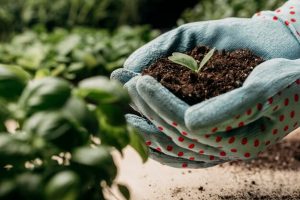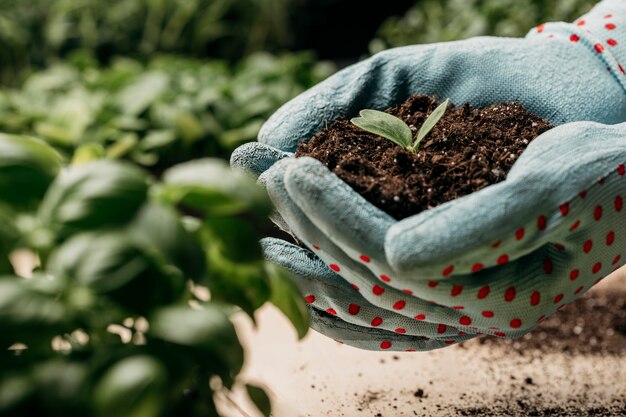Introduction: Nourishing Your Garden Naturally
Gardening is a journey that starts with the soil beneath your feet. As you cultivate your outdoor oasis, the use of organic fertilizers becomes essential for nurturing healthy and thriving plants. Organic fertilizers offer a natural and sustainable way to enrich the soil, providing essential nutrients without harmful chemicals. In this comprehensive guide, we’ll delve into the world of organic fertilizers, exploring their benefits and providing valuable insights into their proper usage.
Benefits of Organic Fertilizers for Sustainable Growth
Organic fertilizers contribute to the overall health of your garden ecosystem. They improve soil structure, enhance water retention, and promote the growth of beneficial microorganisms. Unlike synthetic fertilizers, organic options release nutrients slowly over time, preventing nutrient imbalances and minimizing the risk of overfertilization. By embracing organic fertilizers, you nurture not only your plants but also the environment.
Understanding Your Soil: The First Step to Success
Before embarking on your organic fertilizing journey, it’s crucial to understand your soil’s composition and nutrient needs. Conduct a soil test to determine its pH level and nutrient deficiencies. This knowledge will guide your fertilizer choices and ensure that you provide the right nutrients in the right amounts.
Types of Organic Fertilizers and Their Benefits
Compost: The Gardener’s Gold
Compost is the cornerstone of organic gardening. Made from decomposed organic matter, it enriches the soil with a balanced mix of nutrients, improves soil structure, and enhances water-holding capacity. Regular application of compost helps build fertile, nutrient-rich soil.
Manure Magic: Animal-Based Fertilizers
Animal-based fertilizers, such as cow, chicken, or horse manure, provide a nutrient boost to your garden. They contribute nitrogen, phosphorus, and potassium, essential elements for plant growth. However, it’s important to compost manure before applying it to your garden to reduce the risk of pathogens and weed seeds.
Nutrient-Rich Bone Meal
Bone meal is an excellent source of phosphorus and calcium, supporting strong root development and flowering. It’s particularly beneficial for fruiting and flowering plants. Ensure that you choose bone meal from reliable sources to avoid potential contaminants.

Fish Emulsion: Marine Boost for Plants
Fish emulsion is a liquid fertilizer made from fish waste. It’s rich in nitrogen, making it ideal for promoting vigorous vegetative growth. Its quick-release nutrients are readily absorbed by plants, offering a rapid boost of vitality.
Seaweed and Kelp: Oceanic Elixir
Seaweed and kelp-based fertilizers provide a range of trace minerals, growth hormones, and amino acids. These natural compounds enhance plant health, root development, and overall resilience. They’re especially useful for stress recovery and reducing transplant shock.
Earthworm Castings: Nature’s Soil Conditioner
Earthworm castings, also known as vermicompost, are nutrient-rich byproducts of earthworm digestion. They improve soil structure, increase water-holding capacity, and provide a gentle release of nutrients. These castings are teeming with beneficial microorganisms that enrich the soil ecosystem.
Proper Usage Techniques for Optimal Results
Preparing the Soil: Mixing and Incorporation
Incorporate organic fertilizers into the soil before planting. Mix them thoroughly to ensure even distribution of nutrients. This prepares the ground for your plants to access the nourishment they need from the start.
Applying Organic Fertilizers: Timing and Frequency
Apply organic fertilizers according to the specific needs of each plant type. Generally, apply them at the beginning of the growing season and periodically thereafter. Be cautious not to overapply, as excessive nutrients can lead to imbalances or hinder plant growth.
Side Dressing: Feeding Plants Mid-Season
Mid-season, consider side dressing your plants with additional organic fertilizer to support their growth and development. Apply the fertilizer alongside the plant’s root zone, ensuring that it’s not in direct contact with the plant’s stem.
Compost Tea: Liquid Nutrient Elixir
Compost tea is a nutrient-rich liquid made by steeping compost in water. It provides a versatile and easily absorbable form of organic fertilizer. Use it as a foliar spray or soil drench to deliver nutrients directly to your plants.
Complementary Practices for Organic Success
Crop Rotation: Maximizing Soil Health
Rotate your crops annually to prevent soil nutrient depletion and reduce the risk of disease and pests. Different plants have varying nutrient requirements, and rotating them helps maintain soil health over time.
Mulching: Conserving Moisture and Enhancing Soil
Mulching with organic materials like straw, leaves, or wood chips helps retain moisture, regulate soil temperature, and prevent weed growth. As the mulch breaks down, it also enriches the soil with valuable organic matter.
Cover Cropping: Green Manure for Enrichment
Cover cropping involves planting specific crops to improve soil fertility and structure. Legumes, for instance, fix nitrogen in the soil, while other cover crops add organic matter and prevent erosion.
Troubleshooting Common Organic Fertilizer Challenges
Nutrient Imbalances and Deficiencies
Monitor your plants for signs of nutrient deficiencies or imbalances, such as yellowing leaves or stunted growth. Adjust your fertilizer choices and application rates accordingly to address these issues.











